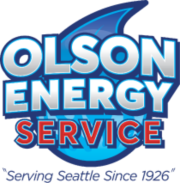-
What Homeowners Need to Know About Geothermal Heat Pumps
If you’re looking to keep your energy costs down in your household this year, you may want to think about installing a heat pump . Obtaining a home energy audit from an HVAC contractor in Seattle can help you determine whether this is a worthwhile investment for you. Geothermal heat pumps are a popular option for cold climates. If you’re interested in learning how these devices work, keep reading.
What are geothermal heat pumps?
A heat pump is a heating system that works by transferring heat out of one space and into another—for example, from the air outside your home to the air inside. Geothermal heat pumps work by transferring heat to or from an area a few feet under the ground, which stays at a steady temperature throughout the year. As with other heat pumps, these systems can be used to either heat or cool the air inside your home, and they can also be used to heat water.
What are the different types of geothermal heat pumps?
There are two distinct types of geothermal heat pumps used in homes: Closed loop and open loop systems. Open loop systems rely on groundwater to exchange heat, while closed loop systems can use either vertical or horizontal installations or rely on a nearby lake or pond for heat exchanges. When you talk to a contractor about installing your heat pump, he or she will inspect your property and advise you which option is best suited to your needs.
What are the advantages of geothermal heat pumps?
Since the temperature of the ground doesn’t change from one season to the next, geothermal heat pumps are much more efficient than heat pumps that rely on air. They are highly eco-friendly, since they don’t produce any emissions or have any noticeable impact on the environment. Geothermal heat pumps also require little maintenance once they’ve been installed, and they are quiet and unobtrusive.
““
-
Ductless Heat Pumps 101
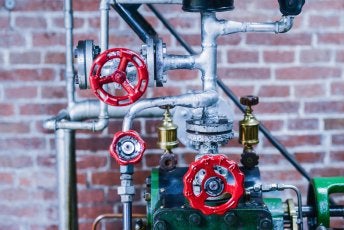
Ductless systems are fast becoming one of the most popular methods of heating and cooling modern homes, and it’s not hard to see why. Compared to traditional central HVAC systems, ductless heating and cooling systems are versatile, efficient, and cost-effective. If you’re considering adding a ductless heat pump to your Seattle home, here’s what you should know.
Ductless systems are effective heaters.
A ductless heat pump works by using a system not unlike the one that powers your refrigerator. The pump uses a compressor to transfer heat from outside into your living space, where the degree of heat you get can be controlled using a remote control. It’s a simple process that results in reliable, consistent heating. Ductless heat pumps are extremely quiet to operate, and they are also much less expensive to use than furnaces.
Ductless systems are highly efficient.
If you’re looking to cut back on your energy usage, a ductless system is a great option for home heating. With a ductless heat pump, you can heat every space by only as much as it needs and avoid unnecessary energy use. HVAC systems with ducts also tend to lose a lot of heat during the process of distributing it throughout your home, which isn’t an issue with a ductless system.
Ductless systems can be used anywhere.
One of the chief advantages of ductless heat pumps is their sheer versatility—they can be used to heat virtually any type of home space, whatever its size. Unlike other heating systems, they don’t require you to install any pipes or other room additions. If you’re ready to retire your outdated, inefficient central heating system, a ductless heat pump is a terrific option. You can also use ductless heat pumps to complement your existing system if you have a space that you’re having trouble heating.
-
An Inside Look at Geothermal Heat Pumps
As the world continues shifting toward more sustainable and efficient energy sources, heating and cooling options have expanded to include geothermal heating and cooling. This technology harnesses the earth’s heat energy to keep homes and businesses comfortable all year round. Explore the ins and outs of geothermal heating, the mechanisms behind geothermal heat pumps, their benefits, and other considerations.
What is Geothermal Heating?
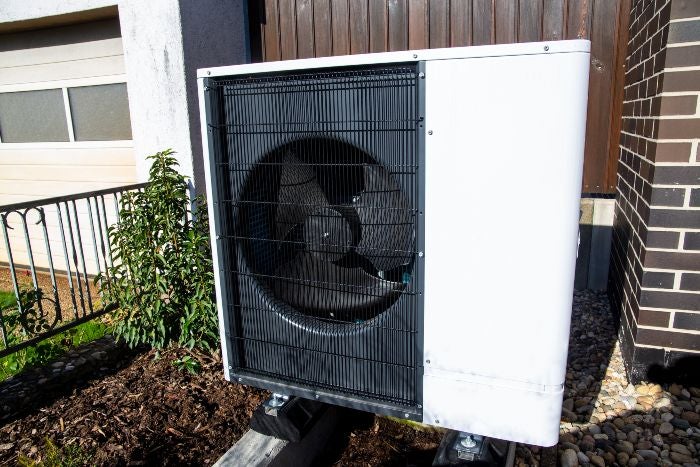
Geothermal heating is an energy-efficient climate control method that taps into the constant thermal energy stored beneath the earth’s surface. This form of heating is seen as a green alternative to traditional methods because it substantially reduces the reliance on fossil fuels and decreases greenhouse gas emissions.
While the ground near the surface fluctuates almost as much as the air temperature, the soil below the frost line maintains a steady temperature of 45 to 75 degrees. This heat source remains consistent despite seasonal changes, making it a reliable option for both heating and cooling.How Do Geothermal Heat Pumps Work?
Are you familiar with air-source heat pumps? These AC-like systems move heat between the indoor and outdoor air for high-efficiency heating and cooling. Geothermal or ground-source heat pumps are similar, but they exchange heat between the earth and the buildings they serve.
A series of underground pipes, known as a ground loop, comprises the heart of geothermal heating and cooling. Ground loop systems come in two forms: open loop and closed loop. Open loop systems utilize well water, a pond, or a lake for direct heat exchange. In this case, the ground loop is filled with water.
Closed loop systems absorb or disperse heat directly to the earth, offering versatility and environmental safety but requiring a larger installation area. In this case, the ground loop contains a mixture of water and antifreeze as the heat-transfer fluid.
In heating mode, the fluid circulating through the pipes absorbs heat from the ground and carries it to the heat pump unit. There, the heat is concentrated and transferred to the air circulating through the building’s ductwork, thus heating the interior.
During the cooling process, the heat pump absorbs heat from the indoor air and transfers it into the ground via the loop system, thereby cooling the building. Transitioning between heating and cooling modes is seamless and can be controlled at the thermostat.
Pros and Cons of Geothermal Heat Pumps
Like all heating and cooling systems, geothermal heat pumps have benefits and challenges. Here’s a breakdown of each:
Pros
- Energy efficiency: Geothermal heat pumps are incredibly efficient. They can deliver three to five units of heat for every unit of electricity they use, making them 300 to 500 percent efficient. This incredible performance is possible because the heat pump transfers heat rather than creating it, a critical difference from conventional heating systems.
- Cost savings: Higher efficiency amounts to significant utility savings over the long term, making geothermal heat pumps a cost-effective investment.
- Environmental benefits: By leveraging renewable energy from the earth, these systems reduce dependence on fossil fuels and produce fewer greenhouse gas emissions.
- Durability and reliability: Geothermal systems have few moving parts, leading to a longer lifespan and lower maintenance needs than conventional systems. The indoor components typically last about 25 years, and the ground loop can last over 50 years.
Cons
- High initial investment: Geothermal heat pumps cost significantly more than traditional HVAC systems, largely due to the ground loop portion. However, federal, state, and local incentives help offset the upfront cost.
- Site-specific considerations: Installation is challenging, sometimes impossible, on smaller properties or areas with difficult ground conditions. A thorough site evaluation is essential before installation.
- Electricity use: While efficient, geothermal systems still run on electricity, so they aren’t carbon neutral unless powered by renewably sourced electricity.
- Professional installation and maintenance required: Due to their complexity, geothermal systems must be professionally installed and maintained. And since geothermal heat pumps are less common, finding a qualified installer may be difficult.
Trust Olson Energy Service for Your Geothermal Needs
With nearly a century of service in the Seattle area, Olson Energy Service takes pride in delivering energy-efficient heating and cooling solutions to our customers. Our mission has always been centered on serving the community with integrity and expertise. We’ll work hard to provide a system that meets your unique needs, enhances comfort, and contributes to a healthier planet. If you’re considering the switch to a geothermal heat pump or need other HVAC services in Seattle, WA, please contact us online or call us at 206.782.5522 to speak with a friendly representative today.
-
Save Space with a Tankless Water Heater
You need hot water for appliances like your dishwasher and washing machine, and you’ll also need it to properly wash your hands or take a shower. While traditional hot water heaters serving Seattle come with large tanks, tankless hot water heaters are a bit more versatile. Tankless water heaters offer a wide variety of benefits that their older counterparts cannot, making them a great investment for the home. If you are thinking about upgrading your home, feel free to read on and find out how you can save space with a tankless water heater.
A tankless water heater stands to be much more efficient than a traditional hot water heater. One of the reasons is that tankless water heaters aren’t susceptible to the standby heat loss that older models are. Rather than constantly using energy to keep a basin of water heated, a tankless heater simply heats the water when it’s needed. This means there’s no need for a tank, so you’ll have more freedom when deciding where to install your unit. You can even have your tankless water heater installed on a wall or inside a cabinet to save space and maintain your aesthetic design.
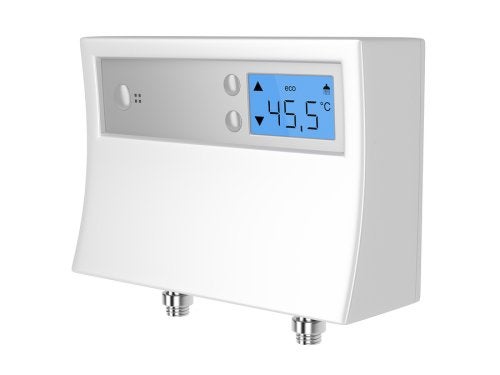
-
How a Fireplace Insert Can Reduce Heat Loss
Heat loss can cause your heat pump or boiler to work less efficiently during the cold winter season. If you are looking for a great way to improve your comfort at home and boost the efficiency of your furnace, you may want to explore the benefits of fireplace inserts . A company that installs fireplace inserts near Seattle can help you determine whether a new insert will help to reduce the heat loss in your home.
There are a couple of ways that fireplace inserts are able to cut down on heat loss in a home. A properly installed insert will warm up air that enters your home from the outside. Replacing your conventional fireplace with an insert will also create a closed system that is not affected by drafts or cold outdoor temperatures. By radiating heat, a fireplace insert will also help you keep your home warmer and more comfortable during the chilly months of winter.
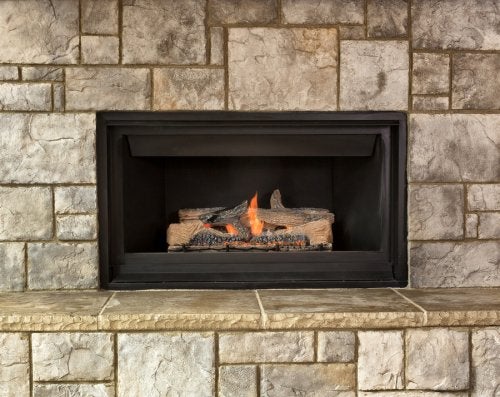
-
When to Consider a Tankless Water Heater
If your home is in need of a new water heating system, you may want to consider shopping for a tankless water heater. Unlike a conventional water heater, which uses energy to store hot water throughout the day and night, a tankless water heater only turns on when it senses a demand for hot water. With services from a company that offers water heater replacement in Seattle, you will be able to install a new tankless water heater that will provide you with terrific performance for many years to come. Let’s take a look at when to consider a tankless water heater for your home.
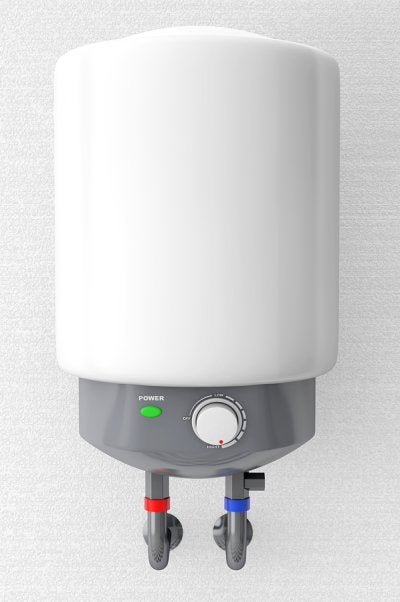
Your Current Water Heater Operates Inefficiently
When you start to notice that your conventional water heater is no longer providing you with good efficiency, it may be time to consider a tankless installation. Some of the signs of an inefficient water heater include higher hot water bills or a system that frequently runs out of hot water. With a tankless unit, you will enjoy much better efficiency from your water heating system.
You Want to Save Space in Your Home
Apartment dwellers and families that live in smaller houses are always looking for ways to free up extra space. You may have noticed that the bulky tank of your conventional water heater takes up a lot of space in your home. If you want to save space and free up additional room for storage, it may be time to go tankless.
You Want to Make a Long Lasting Investment
Purchasing a new water heater can be a major expense for any household. If you want to make sure that your new water heater is a great investment in the long run, you may want to consider your tankless options. Tankless water heaters have an average lifespan of up to twenty years, which is twice as long as the ten year lifespan of a conventional unit. After your tankless water heater has been installed, you can rest assured that it will remain operational for decades in the future.
““
-
How to Expand the Lifespan of Your HVAC Unit?
During the chilly months of winter and the hot summer season, your heat pump and air conditioner will keep your home at your desired temperature. In order to avoid the need for major repairs to your HVAC near Seattle , you will want to take all of the steps that are needed to prolong the lifespan of your heating and cooling system. By taking the time to maintain your air conditioning and heater, you will get the best performance and longevity from your system. Read on for some handy tips that will help you expand the lifespan of your HVAC unit.

Change the Air Filters
One of the most effective strategies for expanding the lifespan of your HVAC unit is to change your air filters regularly. If your HVAC system is operating with a dirty air filter, its various components may have to work harder to deliver clean, conditioned air to your vents. During the peak heating and cooling seasons of the year, your air filter may need to be changed up to once every month.
Resist Closing Vents
While it may seem like a good idea to close off air vents in rooms that are infrequently occupied throughout your home, closing your air vents can actually cause your HVAC system to deteriorate more quickly. When you close off one or more air vents, you will increase the total pressure of the system. As a result, your HVAC components will experience additional wear and tear, and will need to be replaced sooner.
Set Up Preventative Maintenance
If you want to keep your HVAC system in prime operating condition for decades to come, you will need to set up preventative maintenance services with your HVAC professionals. During a preventative maintenance appointment, your technician will check out the safety, performance, and reliability of all of the major parts of your system. Addressing maintenance problems before they become severe is an effective strategy that will help your HVAC system run smoothly for a longer period of time.
““
-
What Is a Ductless Heat Pump?
HVAC appliances like your air conditioner, furnace, and ductless heat pump near Seattle aim to keep you and your family as comfortable as possible in your home. Certain heating and cooling methods are more effective and efficient than others, however, which is why many of those who own homes in temperate climates choose ductless heat pumps. This is a specific type of heat pump that may best suit the needs of your living space. If you’re considering a heat pump for your home, continue on to learn a little bit about ductless heat pumps.
A heat pump can bring your home a new level of efficiency, which will reflect in your energy bills. This type of HVAC unit can actually be used to heat or cool your home, so it’s a great appliance to have all year long. A ductless heat pump is different from a standard heat pump in that it does not rely on existing ductwork to pump heated or cooled air through your home. This means that you won’t have to spend the extra money to have ducts added to your home or have your existing ductwork modified. Instead, the ductless heat pump connects to an indoor air handler.
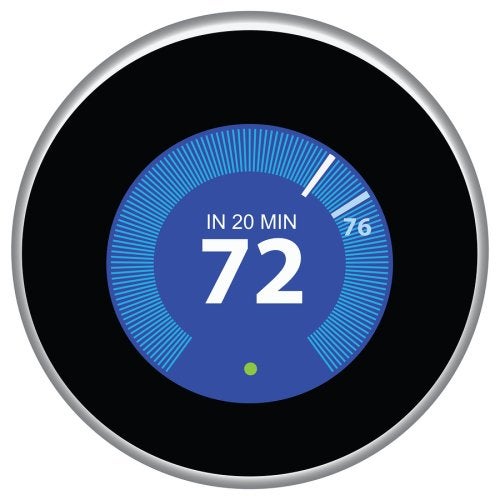
““
-
Building the Perfect Fire
A fireplace can make for a nice aesthetic addition to your home, but it can also give your furnace in Seattle a break if you use it properly. If you want to make the most of your fireplace insert, you should know how to build a fire so it continues to warm your home without causing pollution or hazards to your home. Watch this video on building the perfect fire.
Before you can build a fire, you’ll need firewood. Gather a bunch of dry, chopped lumber and start laying the pieces down. Place the biggest pieces on the bottom, and then lay down another layer in a perpendicular direction. You can then continue to build up layers of firewood, being sure to use progressively smaller pieces of lumber as you go. Once you’re done, you can light the tinder at the top and enjoy a cleaner and more efficient fire.
-
When to Consider Boiler Replacement
A boiler can provide your home with efficient heating throughout the coldest days of the year. If your home has been relying on the same boiler for more than 20 years, it may be time to contact a company that specializes in HVAC near Seattle. Once a boiler or furnace reaches a certain age, it is important to weigh the relative benefits of repairing or replacing your unit.
There are several signs that your boiler is ready for replacement. When you notice that the external metal housing of the boiler is showing signs of rust and corrosion, this is a sure sign that your unit needs to be replaced immediately. If you are spending significant amounts of money on the costs of boiler repair, you may be ready to install a brand new system. To determine whether your home is ready for a brand new boiler installation, be sure to get in touch with your heating contractors.
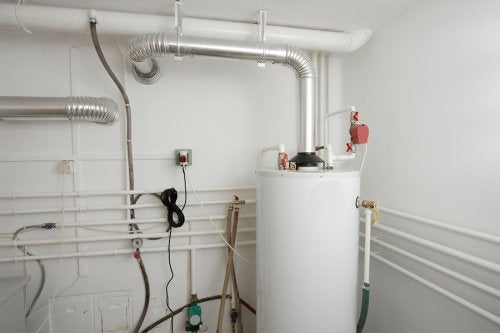
““
RECENT POSTS
categories
- Uncategorized
- Air Conditioner
- Fireplace Inserts
- Fireplace Insert Installation
- Air Conditioning Installations
- Air Conditioning Units
- Air Conditioner Maintenance
- HVAC Professionals
- Heat Pump Installation
- Heating and Cooling
- HVAC Unit
- Heat Pumps
- Furnace
- Furnace Service
- Tankless Water Heaters
- Water Heaters
- Energy Efficiency
- HVAC Contractors
- Olson Energy Service
- Mini-Split Systems
- Ductless Air Conditioner
